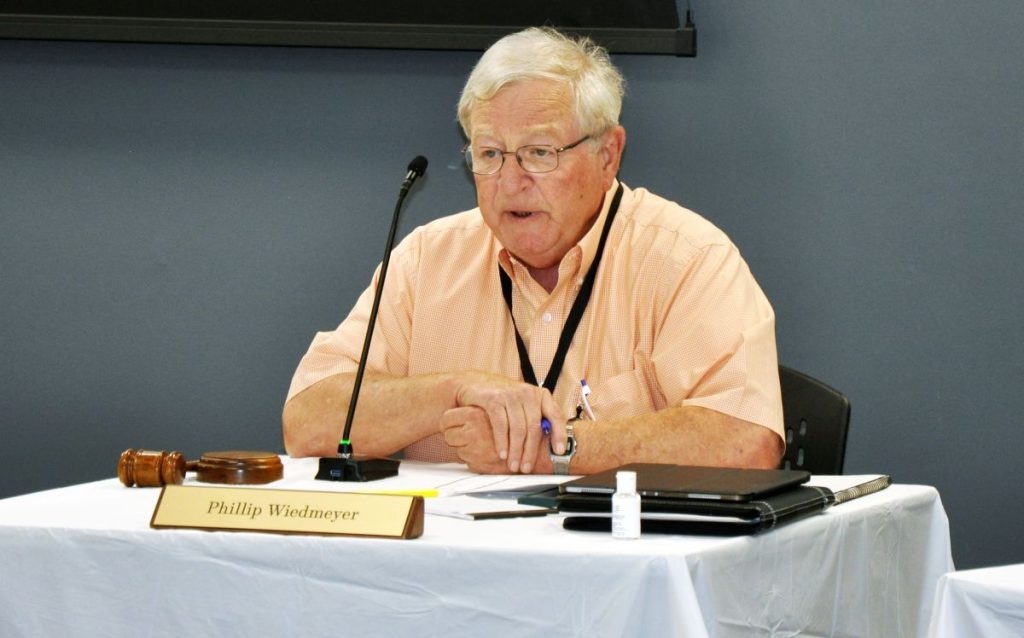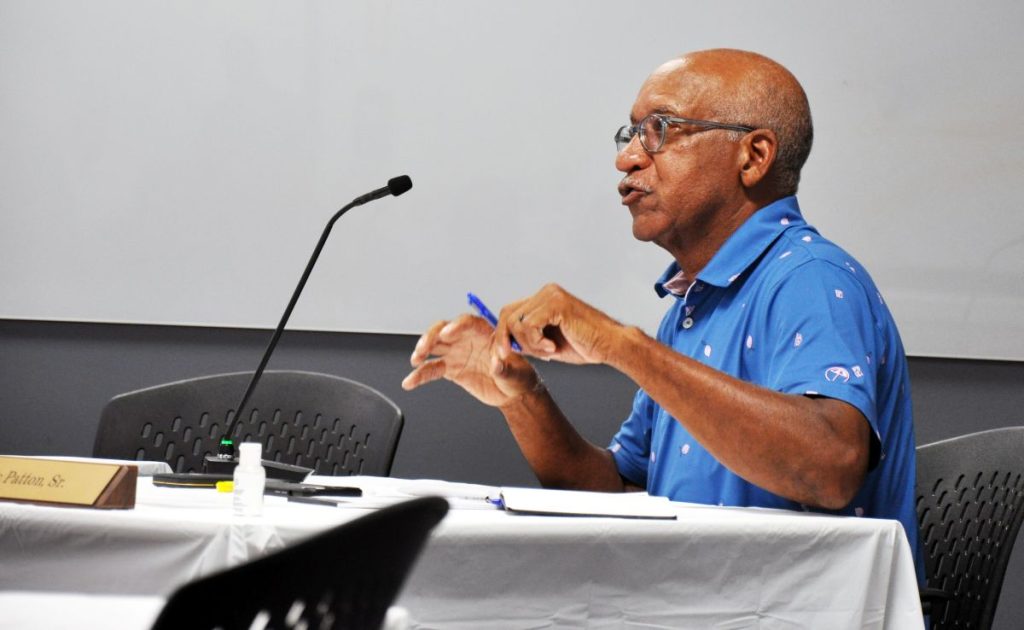Government
Water Bills, Portal Could Show More Details If Board Upgrades Payment Channel

Donate today to help Birmingham stay informed. Please read about our potential suspension of publication.
Many Birmingham-area residents could gain access to more details about their water bills if the City of Birmingham Regional Water Works board votes Monday to upgrade the utility’s 15-year-old payment channel.
In 12 to 16 months, ratepayers would see paper bills and an online customer portal that include information currently available to customer-service staff but not customers, said Barry Williams, an assistant general manager of the water works.
“Our current payment channel is kind of archaic,” Williams said at a water works board work session Thursday evening. “We can only give the customer one look at their bill. When we make changes to the bill, anything like that, the customer doesn’t have a portal that will allow them to see all the changes.”
Williams said the upgrade, which would add services by VertexOne to a current contract with Paymentus, the third party that collects customers’ payments, is a precursor to the water works’ planned switch to automated metering infrastructure. The regional board that began meeting in May, after a state law required a new restructured board, has not decided whether it will continue the AMI project.
“It’ll allow the customers to see multiple reads at different times,” Williams said. “You know, when you go to automatic meter reads, it won’t be a once-a-month read. It’ll be not every day, but it’ll be more frequent than that.”
Board Vice Chairman Phillip Wiedmeyer asked whether the water works would be buying more than it needs if the board decides not to proceed with automated meters. The update would cost nearly $1 million through a one-time implementation fee of $537,425 and a licensing fee of $450,676.
Williams said that even if the water works doesn’t use automated meters, upgrading the payment channel is important since it would give customers a better look into what’s happening with billing.
“If you look at the calls we have, some of the questions the customers have – they can’t see it because they can’t see what we see in the back office,” Williams said.
Customers would access the new online portal using their current credentials, Williams said.
Inland Lake Purchase Questioned
Also during Thursday’s work session, the board discussed purchasing for $265,000 a house and other improvements on a lot the water works board owns along the shore of Inland Lake, which is in Blount County and is one of the water works’ two major reservoirs, with Lake Purdy being the other.
Water works outside attorney Shan Paden said that while the previous board already had approved the purchase, it has not closed, and the new board could rescind the action.
Paden explained the water works owns the lots where 43 structures were built in the 1930s, ’40s and ’50s. Only three lots are accessible by land, he said. Through recreational site agreements, private individuals were given licenses to use these lots and build structures including homes and boat houses on them, Paden said, and the agreements could be extended for 99 years.
The water works has been buying the structures and revoking the licenses to protect the watershed, Williams said. There were concerns about seepage from septic tanks, Paden said, but recent discussions have questioned whether the septic tanks are an issue given the houses aren’t full-time residences.
The utility has purchased 21 houses, and 22 are still privately owned, Paden said. Licensees can pass licenses to their heirs, but if they want to sell to anyone else, they must obtain consent from the water works, he said.
Board member Jeff Brumlow questioned what insurance the water works holds on lots no longer under private licensure.
“Let’s look at the insurance requirements on that,” Brumlow said. “I just want to be sure if somebody gets hurt, I want to make sure they’re insured in some way shape or form. There are people who get on the lake and drink a lot of beer and want to park somewhere.”
The lots still under license through recreational site agreements are supposed to be covered by the licensees’ insurance policies, per the agreements, Paden said.
Paden said while he is concerned about having dilapidated houses on a public lake, demolishing them is a challenge because most are accessible only by boat and there are steep hillsides between the water and some structures. Paden said burning the houses could be problematic because they contain asbestos and lead paint.
Water works General Manager Mac Underwood said some of the houses the water works purchased in 2018 and before were burned.
The board decided to put the purchase of structures and improvements on Lot 45 of Inland Lake on the agenda for a vote on Monday.
Proposal for Inside Law Department Was a No-Go

Board member Jarvis Patton Sr. asked to add to Monday’s agenda a vote on establishing an internal law department, to reduce the water works’ legal fees. The board is set to vote Monday on paying several invoices for legal services, and Patton questioned in particular an invoice of $81,446 for one month’s work from Porter, Porter & Hassinger, a firm the new board voted to hire.
Patton proposed an internal department with three or four attorneys to handle the water works’ day-to-day legal needs.
“A lot of your major organizations, big business, have law departments, and it cuts down tremendously on expenses,” Patton said.
Wiedmeyer and Brumlow agreed with the idea of creating an internal law department but said the board needs to hire a chief executive for the water works first. The board voted at its last meeting to authorize a search for a chief executive officer, as the state law that restructured the board requires.
“I think it’s something that’s worth considering and should be considered by the CEO as to how to best organize and obtain the legal work that this organization must have,” Wiedmeyer said. “Another approach to it is to have a legal officer, a general counsel, who decides where all the legal work is done.”
The previous board at its last meeting hired a longtime external attorney to serve as general counsel, and the new board voided that employment contract less than a month later.
The proposal to establish an internal legal department was not added to Monday’s agenda.


